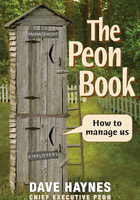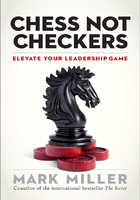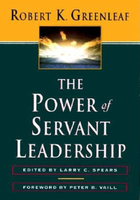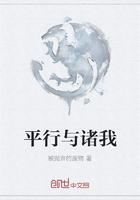Monday morning, Blake called a meeting with the leaders from Human Resources.
“In our last meeting, you brought to my attention your concern and our challenge in finding enough qualified candidates to meet our growth projections. How are we doing on that front?” Blake asked.
Charles, the head of HR, spoke for the group. “Well, since it's only been two days since we met, the situation really hasn't changed much. We have continued to run the play. We're planning to attend a job fair this week, checking our online sources, and we did call a couple of professional recruiters.”
“‘Running the play’ has run its course. It's not working. We need to call a new play,” Blake said firmly.
“Do you have a new play in mind?” Charles asked.
“I think we need to go back to the drawing board and ask some different questions. Here are a few to get you started. . . .
“What is our people strategy? Who is our target employee? How would you describe him or her? I've heard you use the term ‘Top Talent.’ I'm fine with the term—let's just be sure we all agree on what it means.
“Next, what do they want in a job?”
“Who?”
“Top Talent,” Blake responded.
“Well, we've never really asked them. We have our offer, our package—you know, fairly standard benefits: medical, dental, vacation, etc.”
“We've already established whatever we're currently offering is insufficient or we wouldn't be in this mess. Here's the bottom line: I want to know what it would take for us to become a Talent Magnet.”
Puzzled by the phrase, Charles asked, “What's a Talent Magnet?”
“A place so attractive, Top Talent will be standing in line to work here.”
What's a Talent Magnet?
A place so attractive, Top Talent will be standing in line to work here.
“Who are you referring to? Leaders, I assume,” said Peggy, the junior member of the team.
“No, not exactly,” Blake clarified. “I'm thinking more about individual contributors. Granted, many of these talented individuals may someday lead others, but I don't think that should be our focus.”
“Don't we know money is the ultimate Talent Magnet?” Gary, another of Charles's team members, asked.
“Sure, people want to make money. But I'm not sure money is the primary motivator for Top Talent,” Blake said.
“What do you think it is?” Charles asked Blake.
“That's what I want you to figure out.”
“Got it,” Charles said. “We'll start by interviewing our own Top Talent. Why are they here? What attracted them?”
“Sounds like a good start,” Blake said. “I have one more suggestion.”
“And that is?”
“Interview the typical talent, too—men and women we might consider the B players. I think the magic may be found in understanding the differences between the two groups. We want to create an organization that attracts more Top Talent.”
“A Talent Magnet,” Charles affirmed.
“You got it,” Blake said.
During the next week, Charles and his team began their search to answer Blake's question: What does it take to create a Talent Magnet? The work was divided into two segments: qualitative and quantitative. There would be interviews and an online questionnaire for both typical and Top Talent with the foundational question: Why did you decide to work here? The team not only wanted to know the answer to the question, but, as Blake suggested, they wanted to know if the attractors for Top Talent were different from typical talent.
Charles would conduct the initial focus groups personally. The first would be with some of the organization's brightest stars—both newcomers and long-term performers.
After brief introductions, Charles began. “Thanks for coming today on such short notice. As you may have heard, we are trying to attract more people like you to join our organization. So, it seemed appropriate to ask you why you decided to work here. We know men and women of your caliber could have chosen to work anywhere.
“I want to start by asking you to think back to your last job. If you would, please tell us how working here is different from your previous employer. Now, don't be mean. No throwing rocks at your former boss.” Everyone laughed.
A middle-aged woman named Carolyn spoke first. “At my former job, I was just a pair of hands. I understood the work needed to get done, but there was no opportunity to grow, improve, or advance. Just hit the numbers, and by the way, the numbers you need to hit are going up—again.”
Then, Rob, a younger man, said, “This is my first job, but I came here because of my perception of leadership. I had heard about Blake and the other leaders. Blake actually gave a presentation at my school. After his talk, he hung around and I had a chance to meet him. It seemed like he was a real genuine guy.”
“How many of you knew something about the leadership here before you started?” A couple of hands went up. “Okay, thanks. What had you heard?”
“I had never met Blake, didn't even know his name, but my neighbor told me about one of the supervisors here—said he was a stand-up guy, really cared about his people.”
“Anyone else care to share why you left your previous company?”
Stan, the oldest guy in the room, said, “It was always about the bottom line. I know companies have to make money. I want them to so we can stay in business. But really? Does it always have to be about cutting costs and boosting profits?
I got tired of it and left.”
“So, why are you here? We want to make money, too,” Charles probed.
“Yes, and I already said, I think that's good. However, this place does good way beyond making money. You know, all the things we do in the community. We give back. I think that matters—it's why I'm here.”
“Thanks, Stan. Let's hear from the rest of you. . . .”
For the balance of the session, Charles's questions zeroed in on what, specifically, attracted these talented men and women to the organization.
The next group assembled was comprised of a diverse group of what the team called typical talent. These were not bad performers; on the contrary, they were good, steady contributors. These were the people some organizations would call their B players. Blake's suggestion to talk to them was about to pay off.
“Hi. For those I have not met, I'm Charles, the head of Human Resources. Thanks for taking a few minutes out of your busy day to have a conversation with me. As you know, and in large part due to your hard work, we are growing. The challenges of growth are numerous. One of them is attracting enough people to get the work done. That's what we want to explore today. What attracted you to work here?”
Charles did a masterful job asking one good question after another. The conversation flowed freely. There were clearly similarities between the two groups, but there were also stark differences. Some of the attractors mentioned by Top Talent were totally absent from the second conversation.
Although there would be more focus groups, based on these two alone, Charles felt Blake's instinct was correct. The attractors for Top Talent did appear to be different, but Charles wanted some additional input before he reached any final conclusions.
To collect the hard data, Charles and the team created a list of potential attractors, many of which were identified in the early focus groups. They then built an online questionnaire so that employees could rank what they felt were the most compelling factors in their decision to join the company. He sent the survey to two groups: Top Talent, as identified by three consecutive years receiving the highest performance ratings; and typical talent, those whose ratings were consistently just below the Top Talent group.
The survey would be administered to both groups the following week. The team was anxious to see if the hard data would support the stories they were hearing.
To probe deeper, Charles contacted a dozen of his peers in organizations large and small across the country. He asked them if they wanted to do the online survey with their people. The response was overwhelming—almost all of them said yes.
This broader sample would help establish the validity of the hypothesis and remove the inherent bias of any single organization. The team was about to find out the truth about Top Talent.















